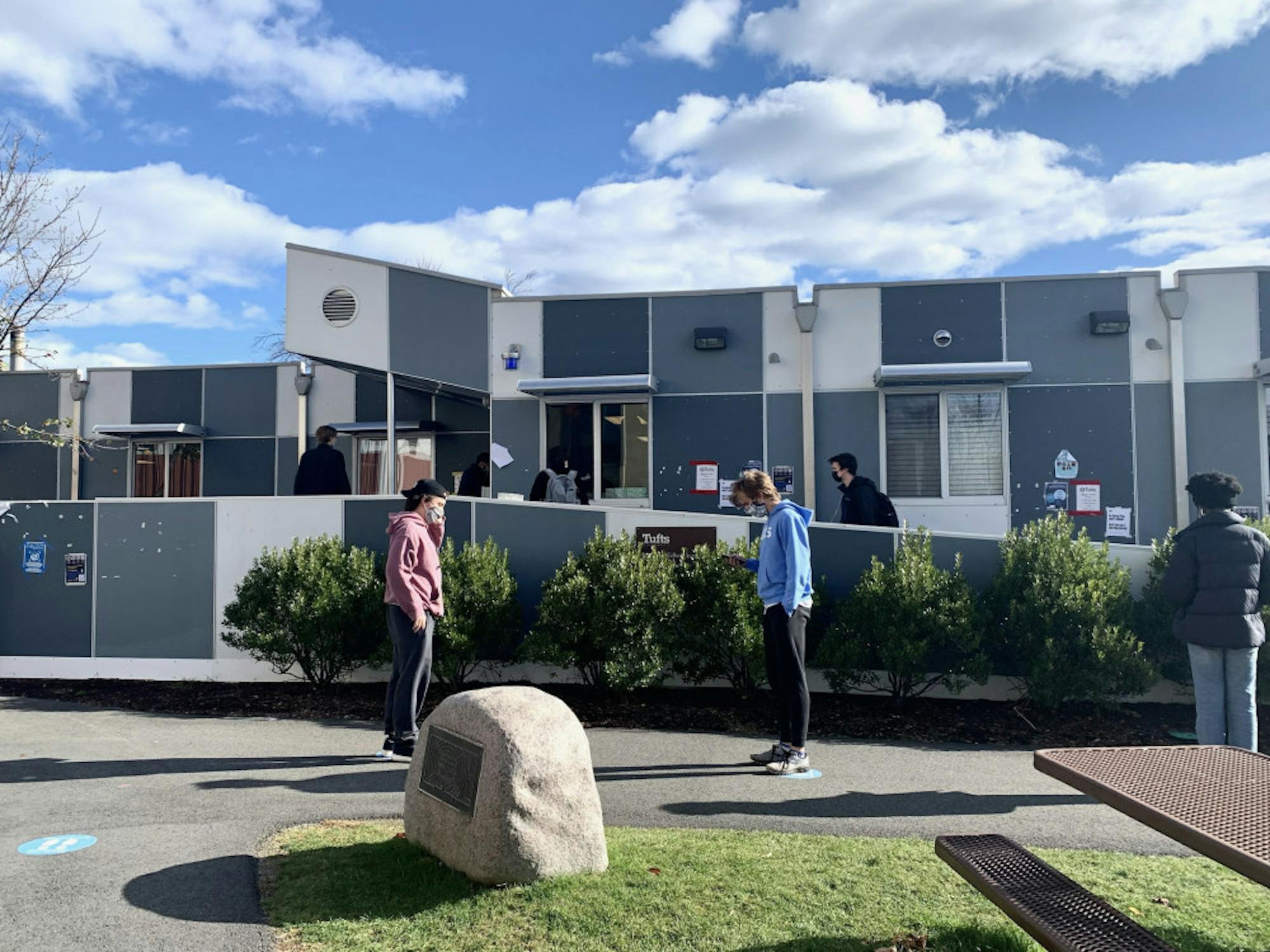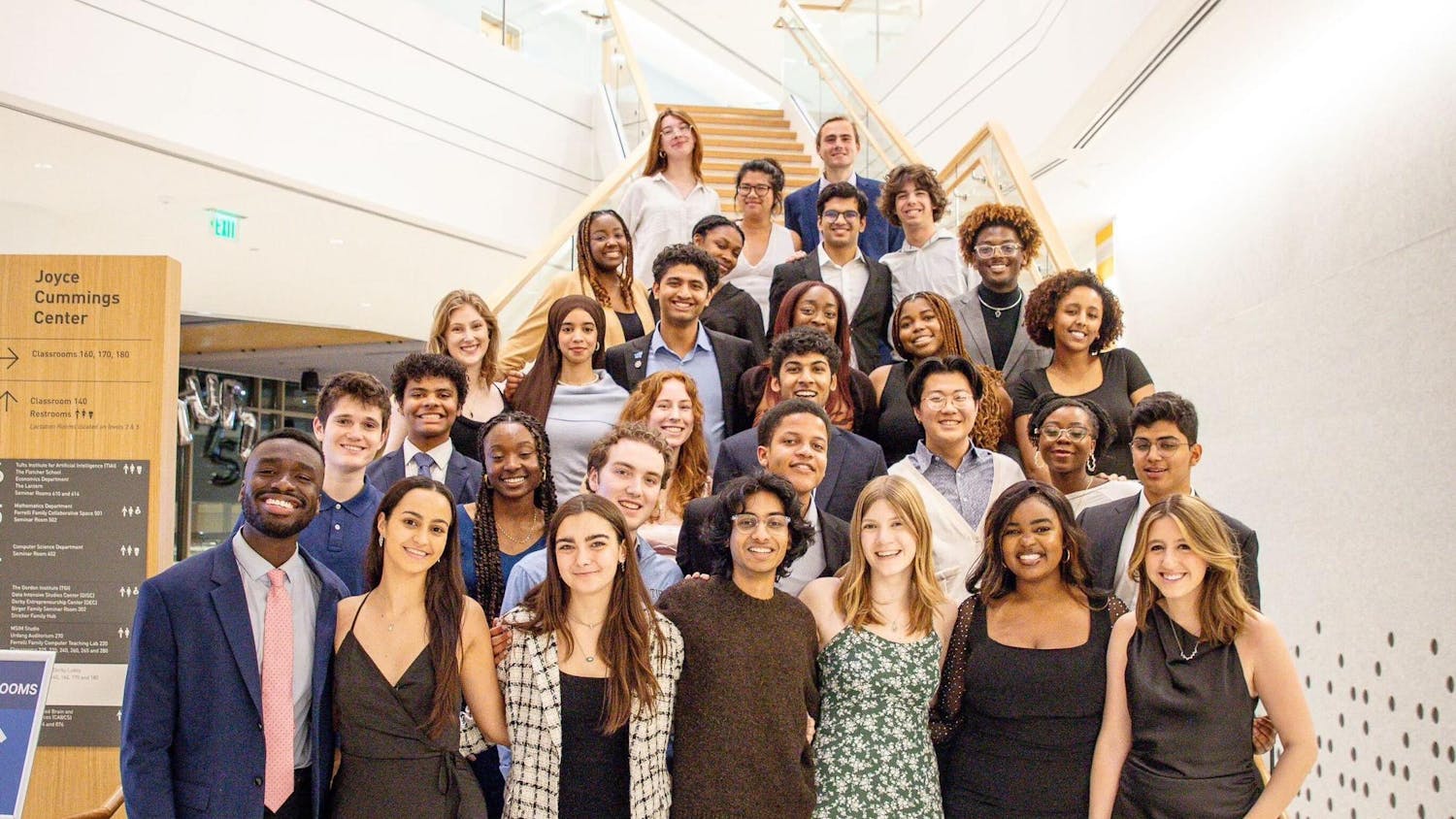Tufts announced that all undergraduate students would be tested for COVID-19 twice per week, a departure from a previous policy of weekly testing that had been in place since students began arriving on campus. This announcement was sent via email to the Tufts community and signed by University Infection Control Health Director Michael Jordan and Dean of Student Affairs Camille Lizarríbar.
"We are writing because the number of positive COVID-19 tests at Tufts has increased during the last few days," Jordan and Lizarríbar wrote in the email. "This is almost surely due to the highly transmissible Delta variant."
Jordan and Lizarríbar noted that at other universities, COVID-19 transmission has led to widespread outbreaks and campus restrictions. They pinned these outbreaks on high-density indoor activities, such as attending bars or nightclubs.
"Duke University went from zero positive cases to 325 in a single weekend," Jordan and Lizarríbar said. "At Connecticut College, one positive individual is believed to have infected 125 others and led to the entire campus going to remote status. Such outbreaks are not random or accidental. These outbreaks are related to high-density indoor activities, where even vaccinated people who spend a number of hours together without wearing masks become infected."
According to the email, at Tufts, every individual who has tested positive for COVID-19 thus far this semester was fully vaccinated, and Jordan and Lizarríbar cautioned students that the university has been seeing both symptomatic and asymptomatic cases.
They also noted that even if someone is vaccinated, they still are required to self-isolate for ten days following a positive test, which could greatly disrupt their schedule and induce stress.
"Those testing positive are fully vaccinated, which means that their odds for severe illness are greatly reduced," Jordan and Lizarríbar said. "Even if you are vaccinated, symptoms still can be serious, and if you test positive, you will need to-isolate for at least 10 days, which would be both disruptive and stressful for you."
Jordan and Lizarríbar cautioned students to use good judgement and reminded students to not come to class or campus if they have symptoms, to wear masks indoors and outdoors when in large gatherings and to avoid large off-campus gatherings.
"If the number of positive tests continues to rise, we may have to reinstate restrictions on in-person campus events and student organization activities," Jordan and Lizarríbar said. "We have all worked very hard to be here this fall, and hopefully by collectively making good choices we can avoid having to limit how we engage with one another."






